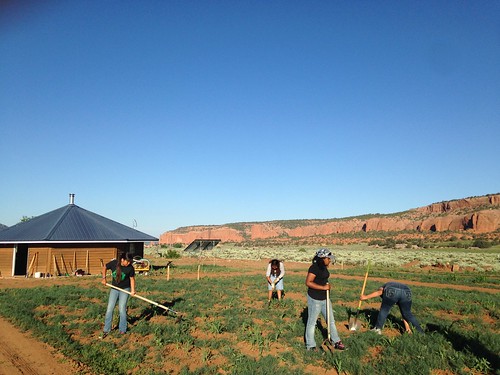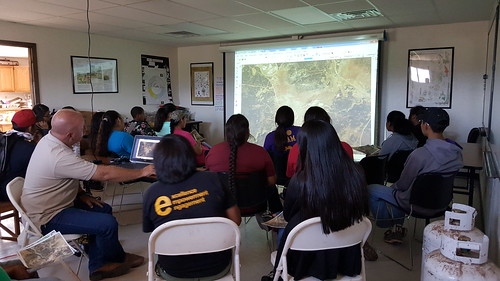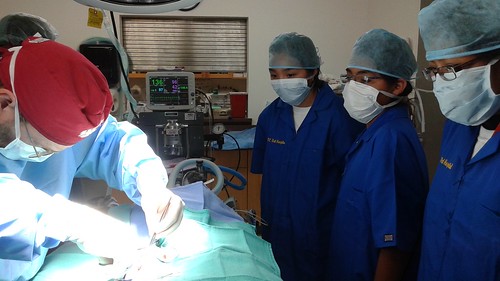
The land and our strong ties to the earth as humans are a source of culture and livelihood throughout Indian Country. Native youth carry the hopes of their ancestors forward, and many tribes have visited with me at the Office of Tribal Relations, interested in learning how their children and grandchildren can discover more about the world around them. Through the Animal and Plant Health Inspection Service’s (APHIS) Safeguarding Natural Heritage (SNH) program, the USDA partners with Tribal Colleges and Universities to promote youth exposure to agriculture, natural resources, and wildlife biology.
Since 2007, the SNH program has served as a 2-week outreach program for students 14 to 17 years of age, bringing APHIS experts—as well as Tribal elders, Tribal professionals, and university professors—together with Tribal youth for instruction and mentoring. SNH students pay only the cost of transportation to and from their homes to the participating campus, and APHIS covers the cost of tuition, room and board, and laboratory supplies. Tribal Colleges and Universities work with APHIS to develop workshops and trainings to help students learn how to safeguard the natural world within and outside Tribal boundaries. Activities often include hands-on labs, workshops, discussions, and field trips.
Students may spend a large part of each day engaged in activities involving agriculture and the welfare of animals. These morning schedules range from assisting elders with sheep, cattle, or other small animals, to visiting zoos, or bison or wolf sanctuaries. Students may be introduced to water quality / soil testing or have a trainer in geospatial (GIS) mapping demonstrate how we track invasive species. The flexible curriculum allows students to understand how the food they eat is tended and grown from the beginning of its cycle, as well as the resources needed for healthy crops and robust cattle. More information on the benefits of these activities can be found at www.aphis.usda.gov/publications/aphis_general/content/printable_version/native_partnering.pdf.
Students then spend their evenings in group activities including rock repelling, traditional cooking demonstrations, weaving or playing sports such as basketball, softball, or swimming. Balancing teaching with team building allows the students to join with other Native Youth and meld practical education with culture and tradition.

APHIS has successfully partnered with several Tribal Colleges and Universities through this program, including Tohono O’odham Community College, Sells, Arizona; the Institute of American Indian Arts, Santa Fe, New Mexico; Diné College, Tsaile, Arizona; and Navajo Technical University, Crownpoint, New Mexico. This year, APHIS is collaborating on SNH programs with three institutions: DC, NTU, and the University of North Carolina at Pembroke (a historically American Indian university). APHIS hopes to collaborate with additional Tribal Colleges and Universities and Tribal academic institutions on SNH programs in the years ahead. Colleges and universities that are interested in this collaboration can contact Carl Etsitty, Tribal Liaison at USDA APHIS, through e-mail at Carl.Etsitty@aphis.usda.gov or Dr. Terry Clark, Deputy Director at USDA APHIS, through e-mail at Terry.W.Clark@aphis.usda.gov.
The USDA Office of Tribal Relations (OTR) serves as a single point of contact for Tribal issues and works to ensure that relevant programs and policies are efficient, easy to understand, and accessible. If you are interested in learning more about how the USDA can partner with you to help fulfill your goals, contact us at (202) 205-2249.

